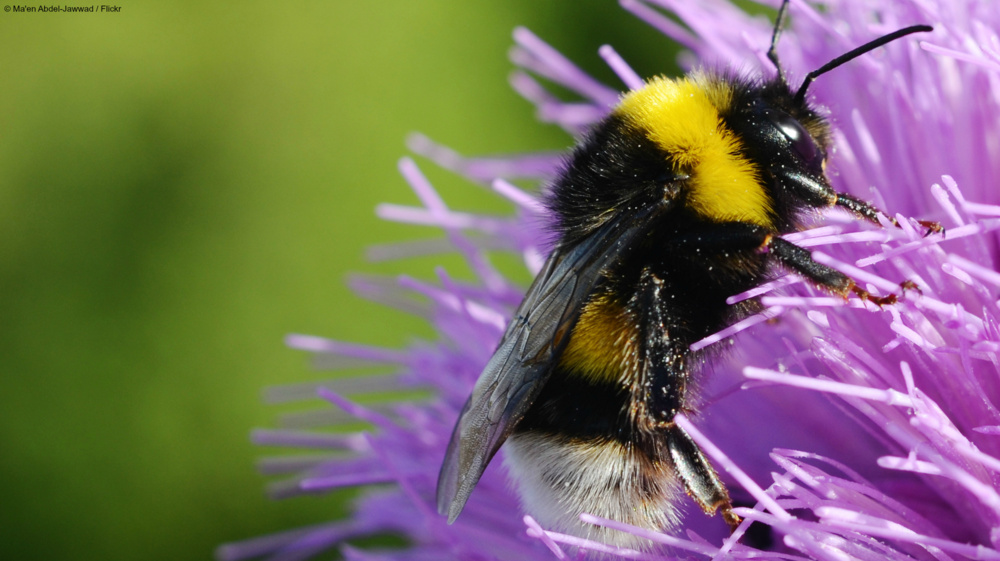
Government rejects bee-saving policy recommendations
The government’s response to the important EAC ‘Pollinators and Pesticides’ report does not look promising for pollinator protection.
Pollinating insect species across the UK are facing downward spirals in numbers, with over 50% of butterfly, bee, moth and wasp species currently in decline. Despite this, the government's recent response to the EAC's 'Pollinators and Pesticides' report provides little assurance that meaningful policy steps will be made to benefit pollinators.
In its recent response to the Environmental Audit Committee’s (EAC) pollinator report, the government rejects recommendations which would further protect pollinators from the threats facing them from pesticide use, habitat loss, land use change and disease.
Several key policy and practice changes suggested by the EAC will not be adopted by the government according to the report, including:
- Increasing the transparency of agrochemical company research to the public and scientific community
- Delivering a national pollinator monitoring programme
- Adding more pollinator species to the national environmental risk assessment
- Expanding the bans of bee-harming neonicotinoid pesticides.
DEFRA’s refusal to put agrochemical industry trial risk assessment results in the public domain was justified with ‘Much of this routine regulatory information will be of limited interest to academic researchers or the public’ and ‘there is a concern that a company could take another’s study’. However, with the vast interest shown for pollinators by the public and academic world and the existence of intellectual property rights, this reasoning is hard pushed to explain the government’s covertness surrounding this matter.
The lack of government support for delivering a national pollinator monitoring programme, by working to produce a list of sentinel (or ‘indicator’) species to help monitor the status of a wider range of species, is disappointing. Such a plan would deliver scientific expertise which is essential for furthering our understanding of pollinator status.
The document reveals that the government is still strongly opposed to the EU wide ban on neonicotinoid pesticides, which must be implemented by European Commission ruling, this December. The ban is on three neonicotinoids, thought to be harmful to bees because of their negative effects on navigational ability, foraging behaviour and consequential implications for colony survival. The government refers to a selection of inconclusive scientific studies in order to disregard the precautionary principle and show continued support of neonicotinoid use, despite multiple studies which show lethal and non-lethal effects on bees.
The EU ruling does not extend to all neonicotinoid uses. Their use on agricultural crops deemed unattractive to bees, as well amenity and gardens uses are to remain untouched by the restrictions that come into force in December 2013. As such, these pesticides will continue to be used in gardens, golf courses and other private and public spaces. Given the large foraging ranges of many bees, the persistence of neonicotinoids in the environment, and the heavy reliance of some pollinator species on suburban garden flora, this 'minimum-will-do' approach means most pollinator populations are unlikely to be fully freed of contact with these pesticides during the ban.
EU regulations outlining when neonicotinoid use must cease, such as: ‘when the crops are in flower, when flowering weeds are present or when bees are actively foraging’ will only be adhered to with full monitoring and enforcement, but the government response provides little assurance that this will occur.
EJF is disappointed that the government will not implement the most important of the EAC’s recommendations for action against pollinator declines. A sustainable and healthy relationship between wild-flora, agricultural crops and their diverse pollinators is both an economic necessity as much as it is crucial to food production, and it is therefore vital that more rigorous policy is developed to protect them.
EJF’s bee campaign will to continue to raise awareness of the plight of pollinators, lobby the government to cease complacency on pollinator protection and inform the public about what they can do to help.
Our Call to Action asks the government to:
- Properly monitor and implement the EU ban on neonicotinoids,
- Provide incentives for the adoption of pollinator-friendly farming practices, and
- Fund research into the role of pesticides in the decline of bee populations.
EJF is also asking the public to 'give bees a break' and cease the use of neonicotinoids and other pesticides in their gardens, which provide invaluable and diverse floral resources for our pollinators.
SIGN UP FOR OUR EMAILS AND STAY UP TO DATE WITH EJF